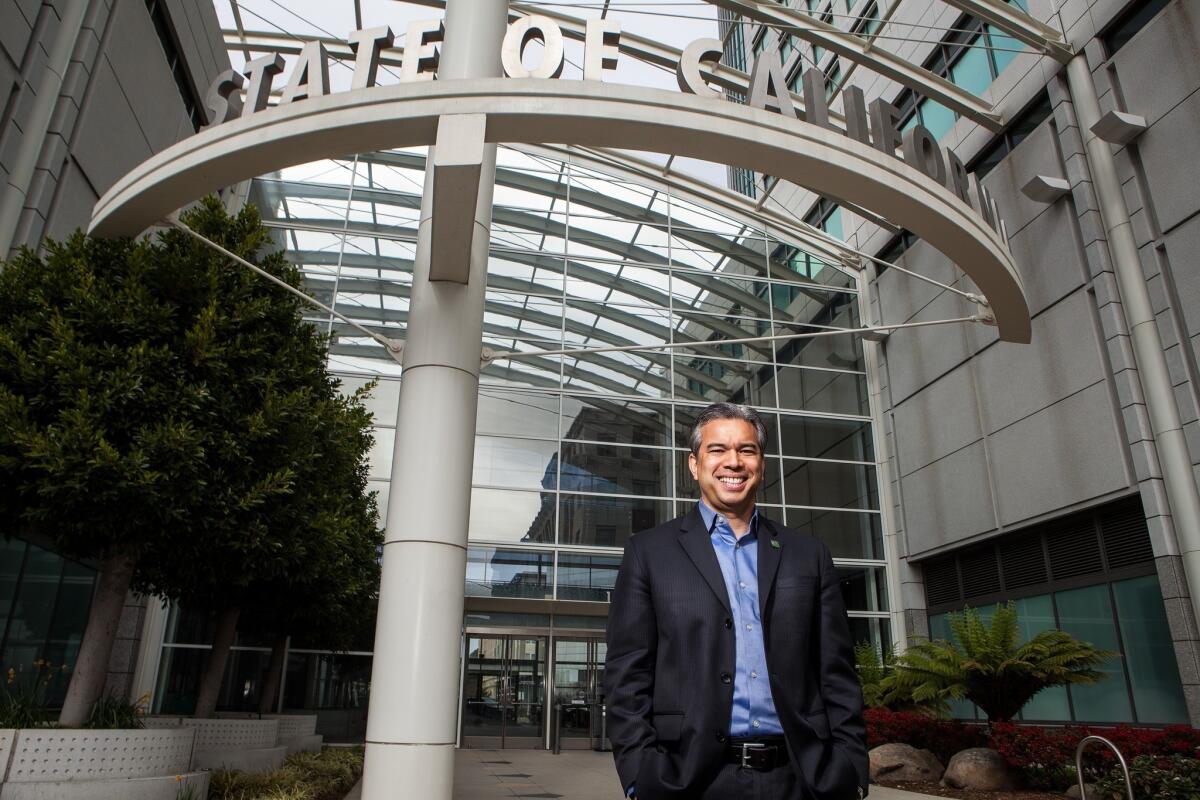Lawmakers test Brown’s no-tax resolve with calls to hike levies

- Share via
SACRAMENTO — Releasing his latest budget plan this week, Gov. Jerry Brown repeated his assurance that the tax hikes voters agreed to last fall were enough, that he won’t ask them to dig deeper into their pockets any time soon.
“We just got a nice tax,” he said. “I think we ought to take a deep breath and show how we are spending it in a wise way before we start looking for more money.”
But even before Brown spoke, lawmakers were testing him. They have been forging ahead with proposals to tax Californians more — on every can of soda, cigarette, plastic grocery store bag and bullet. Strip club patrons and marijuana users could pay more, and drivers could be on the hook too.
The Democrats who control the Legislature have offered about 20 tax and fee measures, approving them in one committee vote after another. Those measures that are past at least their first legislative hurdle add up to $5 billion.
Brown has not hidden his frustration. He said the rush of tax bills reflects a Legislature struggling with self control. On Tuesday, he called the Capitol “a big spending machine.”
The state has taken in $4.5 billion more than expected since Jan. 1, and the majority party has enough strength in the Legislature to override any Brown vetoes. But the measures undermine the leadership’s stated resolve to focus on making the most efficient use of the money the state already has.
Republican legislators, whose numbers shrank to near-irrelevance when Democrats swept to supermajority level in the November election, are aghast.
“The governor called on Democrats to show restraint,” said Senate GOP Leader Robert Huff of Diamond Bar. “If this is their version of ‘restraint’ … I am truly afraid to see what happens … once they feel unrestrained.”
Few Californians would be spared if all the bills were to pass. Lawmakers, in pursuit of pet projects at a time when there still is not enough money in the budget to fund them, have crafted the tax hikes narrowly to make them viable.
Senate President Pro Tem Darrell Steinberg (D-Sacramento) has cautioned his caucus that the brakes could be put on some of the bills. But Steinberg is the coauthor of one of the measures, which could make it harder for him to slow down some of those championed by his colleagues.
He wants to create a $50 fee for a permit to be required of anyone buying bullets in California. The charge would raise up to $100 million annually and pay for background checks to make sure that bullets are not bought by anyone who has been disqualified from possessing guns.
Assemblymen Rob Bonta (D-Alameda) and Roger Dickinson (D-Sacramento) are pushing a 10% tax on bullets to provide $92 million annually for crime fighting in cities and for mental health programs aimed at reducing gun violence.
“We know that taxing ammunition can provide a stable source of revenue to meaningfully target gun violence prevention,” Dickinson said at a recent committee hearing.
Sen. Kevin de León (D-Los Angeles) says smokers cost the state too much in medical care and need to start paying for it. His proposed $2-per-pack cigarette tax passed two policy committees last week.
“Our goal is to ensure that taxpayers don’t foot the bill,” he said.
Sen. Bill Monning (D-Carmel) wants a penny-per-ounce tax on soft drinks to raise $1.7 billion for anti-obesity programs.
“We’re in the midst of a public health crisis fueled by childhood obesity,” Monning testified at a committee hearing two weeks ago.
The measures are all staunchly opposed by industry groups. The National Rifle Assn. says a bullet tax is excessive. The California Retailers Assn. says new tobacco taxes will cost jobs, promote black-market activity and hit the wallets of poor people more than others.
A food industry group, the Center for Consumer Freedom, sent a senior research analyst, J. Justin Wilson, to lawmakers to warn that the proposed soda levy is “nothing more than a moneymaking exercise for California’s cash-strapped government.”
Even strip clubs have mobilized. The Assn. of Club Executives of California is trying to fight off a $10-per-customer tax — an effort to raise money for rape prevention programs.
“There is no evidence whatsoever that nudity plus alcohol leads to sexual violence against women,” Matt Gray, a representative of the association, wrote in a letter to lawmakers.
The biggest new tax proposal is aimed at oil companies. The measure would raise $2 billion a year for education and state parks with a 9.5% tax on oil pumped from California ground. The bill would prohibit oil companies from passing on the tax to motorists, but legislative staffers said that provision would be difficult and costly to enforce.
Brown noted that oil companies have killed off similar proposals, the last ones in 2011 and 2010. The oil industry spent about $100 million to crush such a proposal on the ballot in 2006.
“Those people who talk about an oil tax — good luck,” said the governor, who was skeptical that the measure would reach his desk.
More to Read
Sign up for Essential California
The most important California stories and recommendations in your inbox every morning.
You may occasionally receive promotional content from the Los Angeles Times.














